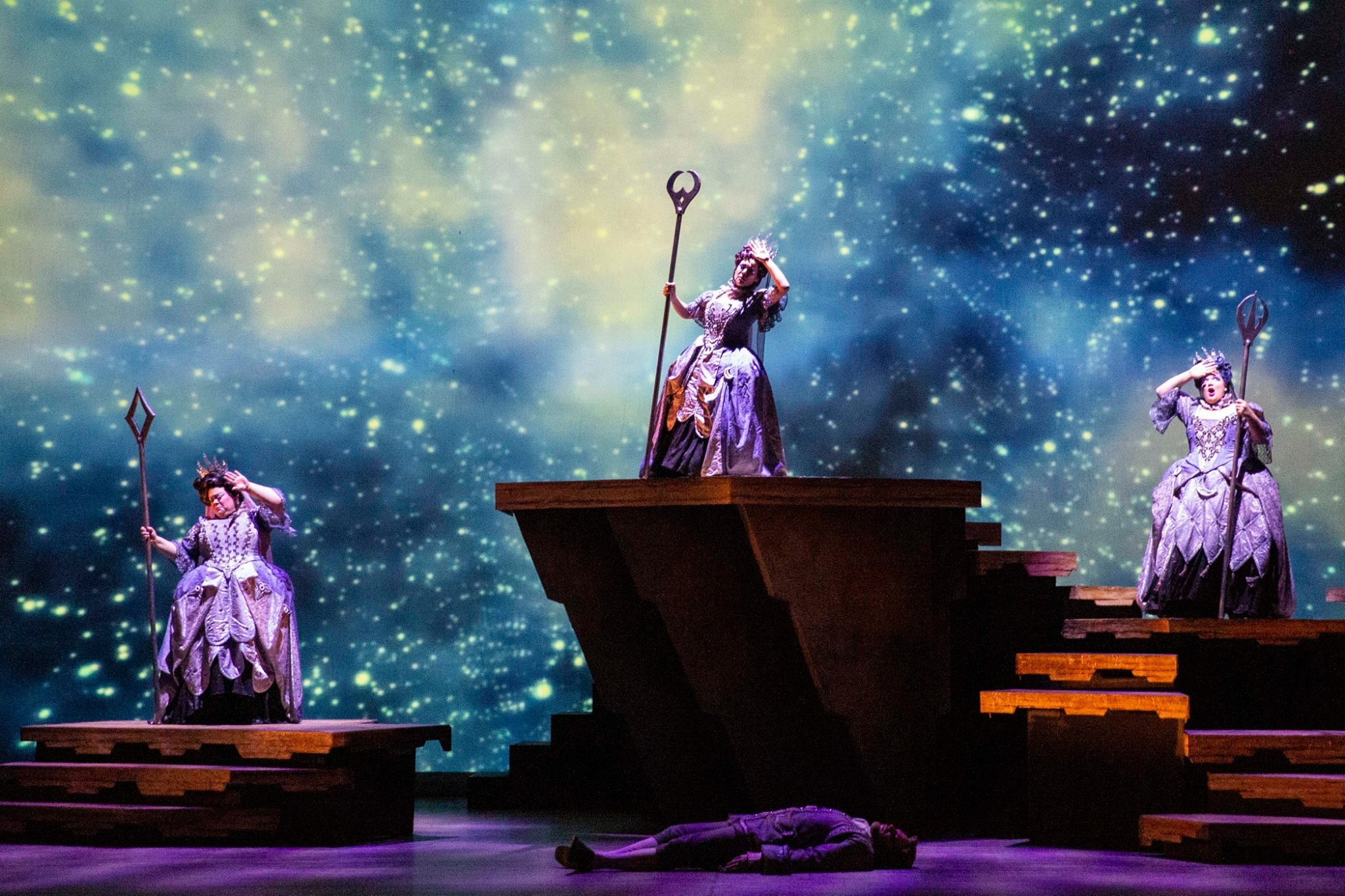To most of us, the word “opera” conjures up bored and wealthy patrons, in black tie or pearls, suffering through incomprehensible screeches: in short, nothing like a good time.
A recent performance of The Magic Flute (October 25th at Devos Place) put the lie to that impression. The show, which opened Opera Grand Rapids’ 2018-2019, featured a dragon, a dangerous quest and an evil queen whose high style and incredibly long fingernails made her look like a cross between Marie Antoinette and Edward Scissorhands. There was drama, some of which still resonated all these centuries later, and humor, which almost always did. And the music was beautiful.
The opera, Mozart’s last, begins with a prince (Dennis Shuman) about to meet his death by way of a vicious serpent. After pleading with the gods for safety, Prince Tamino faints and is visited by three ladies, who are, in the modern parlance, thirsty; they find him attractive enough to save his life.
The prince soon finds himself on a quest to rescue the captured daughter of the Queen of the Night, mistress of the three women who had saved him. Over the course of the show, he meets Papageno, a birdcatcher (played with great comic brio by John Viscardi); encounters enough Freemason symbolism to satiate the hungriest conspiracy theorist; and finds true love with beautiful Pamina (Cheyanne Coss).
Appropriately, the production is one of great spectacle. Squint at the stage and you might be looking at another world, often a darker, more elemental world. Occasional smoke adds atmosphere, and large video backdrops contribute the show’s alternating magic and menace. Particularly striking is a huge bone-white moon that darkens to blood-red.
I may have made the show sound darker than it is. There are some hellish moments, and the monstrous Monostatos, twisted and leering, is all lizard tongue, entitlement and lust. And to be fair, there are two near-suicides. Despite that, the overall tone, conveyed through story, performance and music, is one of light adventure. There were several children in the audience, and none of them appeared traumatized.
Operas last or disappear on the basis of their music, and the music in The Magic Flute has lasted centuries. The cast honored it with their performances. Jana McIntyre, the Queen of the Night, was virtuosic, all confidence and clarity; hers may have been the finest performance. Coss, as Pamina, had to convey trepidation, love, fear, despair, and more. Much was asked of her — indeed, much was asked of all the women; less so, in general, of the men — and she delivered all of it.
So consistently enjoyable were the comic performances that it may have been possible not to notice the skill expended on them. John Viscardi brought a clean, resonant voice to loose-limbed Papageno. Rachel Mills, playing his love interest, Papagena, sang brightly, danced beautifully, and performed with as much joy as I’ve ever seen on the stage. Jessica Dold, Christine Amon, and Diane Schoff, the Queen’s servants, were as rowdy as a bachelorette party, and could sing, to boot.
The great humor and spectacle underscored a point that’s more or less been lost: opera was popular culture. In the United States, it’s always had a whiff of snobbery, of Old World dustiness (although it should be noted that this performance is in English). If not snobbery, silliness: Bugs Bunny in drag! By staging a performance that preserves the beautiful music while updating the humor, Opera Grand Rapids has done the community a great service: it’s reminded us that opera isn’t just for grim-faced businessmen and their skeletal wives. Opera’s for all of us.
The Magic Flute
Opera Grand Rapids
Oct. 26-27, 7:30 p.m.
operagr.com





